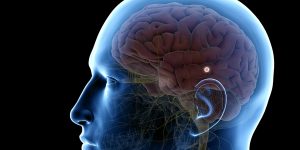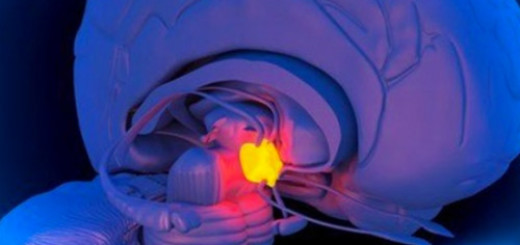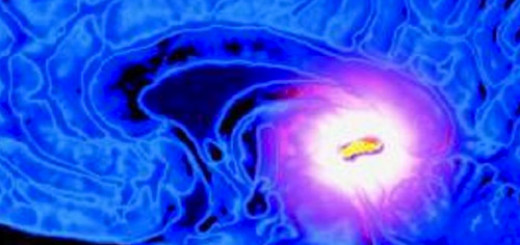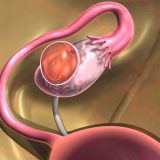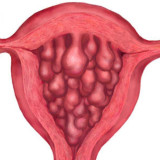The pineal cyst is a rare cystic mass. According to statistics, only 1.5% of patients with signs of a brain disease are diagnosed with this type of cyst. A cyst is a benign formation that can change its size. This disease rarely has serious consequences if the cyst of the pineal gland does not begin to grow sharply. A sharp growth can cause a rupture of the tumor and an outpouring of cystic fluid into adjacent tissues and organs.
What is the pineal gland?
The pineal gland, or pineal gland, is only a small part of the brain. Unfortunately, today the function of this area is not yet fully understood. Nevertheless, it is proved that it is synthesized melatonin, which affects the hypothalamic-pituitary system. In addition, the secret of this gland is responsible for the synchronization of biorhythms of the human body, for example, normalizes sleep and wakefulness.
In addition, secreted by the substances of the pineal gland can inhibit the synthesis of growth hormones, slow down the growth and development of tumors. It is believed that this part of the brain has a direct effect on puberty and is responsible for the normal functioning of the immune system. The cyst of the pineal gland to one degree or another affects all its functions. Sometimes her symptoms are invisible, while in other cases, the presence of cysts leads to serious consequences.
Why does a pineal cyst appear?
Even with the help of modern diagnostic methods, it is not always possible to find out why benign formations appeared in the pineal gland. However, there are two common reasons:
- The pineal cyst often occurs as a result of impaired outflow of melatonin. In this case, the secret accumulates in the gland, gradually forming a solid tumor.
- In addition, a cyst may be the result of a parasitic disease. For example, hydatid disease leads to this result. Penetrating into the gland, the tapeworm larva forms a protective shell around itself, in which all its metabolic products are secreted. Thus, a harmless neoplasm, in the end, turns into a cyst.
Symptoms of a pineal cyst
In most cases, a pineal cyst does not cause any symptoms. However, sometimes patients complain of some unpleasant sensations:
- Pain when rolling eyes;
- Regular headaches;
- Pressure inside the head;
- Drowsiness;
- Double vision.
Tumor growth can lead to the development of cerebral edema, in which cerebrospinal fluid congestion is observed.
Treatment and diagnosis of a pineal cyst
In medical practice, cases where the cyst of the pineal gland is detected randomly are more common. In order to detect the presence of a cystic mass in the head, magnetic resonance imaging is required.
Treatment of cystic formation always depends on the nature of the disease and the causes of its occurrence. The pineal cyst is not always removed or treated. If it does not grow and does not cause discomfort for the patient, the attending physician recommends not touching a benign tumor. However, you will have to undergo a small diagnosis once a year to monitor the development of the cyst.
If the cyst causes discomfort
If the cyst formation is caused by echinococcosis, the doctor prescribes the use of special drugs. If the cyst grows and presses on adjacent areas of the brain, it is advisable for its surgical removal.
Recommendations
Any cyst appears due to different situations:
– due to physical injury during an accident or a sharp fall;
– due to birth defects;
– due to infection by microorganisms.
In order for your health to be in order, regularly visit a doctor and undergo a tomography of your entire body. If a cyst is detected at an early stage of its formation, you can quickly remove it or begin monitoring the growth of a benign tumor.
Do not postpone going to the doctor if you begin to experience discomfort inside the head. Even regular headaches are a cause for concern about your well-being. If you have a cyst, do not try to treat it with folk remedies. Such methods will not help cure the tumor completely. Thanks to them, the patient can feel only a temporary improvement in health.
The effects of cyst enlargement
With an increase in the pineal cyst, serious health problems can begin:
- Temporary blindness;
- Persistent headaches;
- Nausea;
- Drowsiness;
- Constant fatigue;
Inside the cyst is usually a suppurating substance. When a tumor ruptures, this fluid can enter the vital parts of the brain, which will lead to dysfunction of the body or death.
